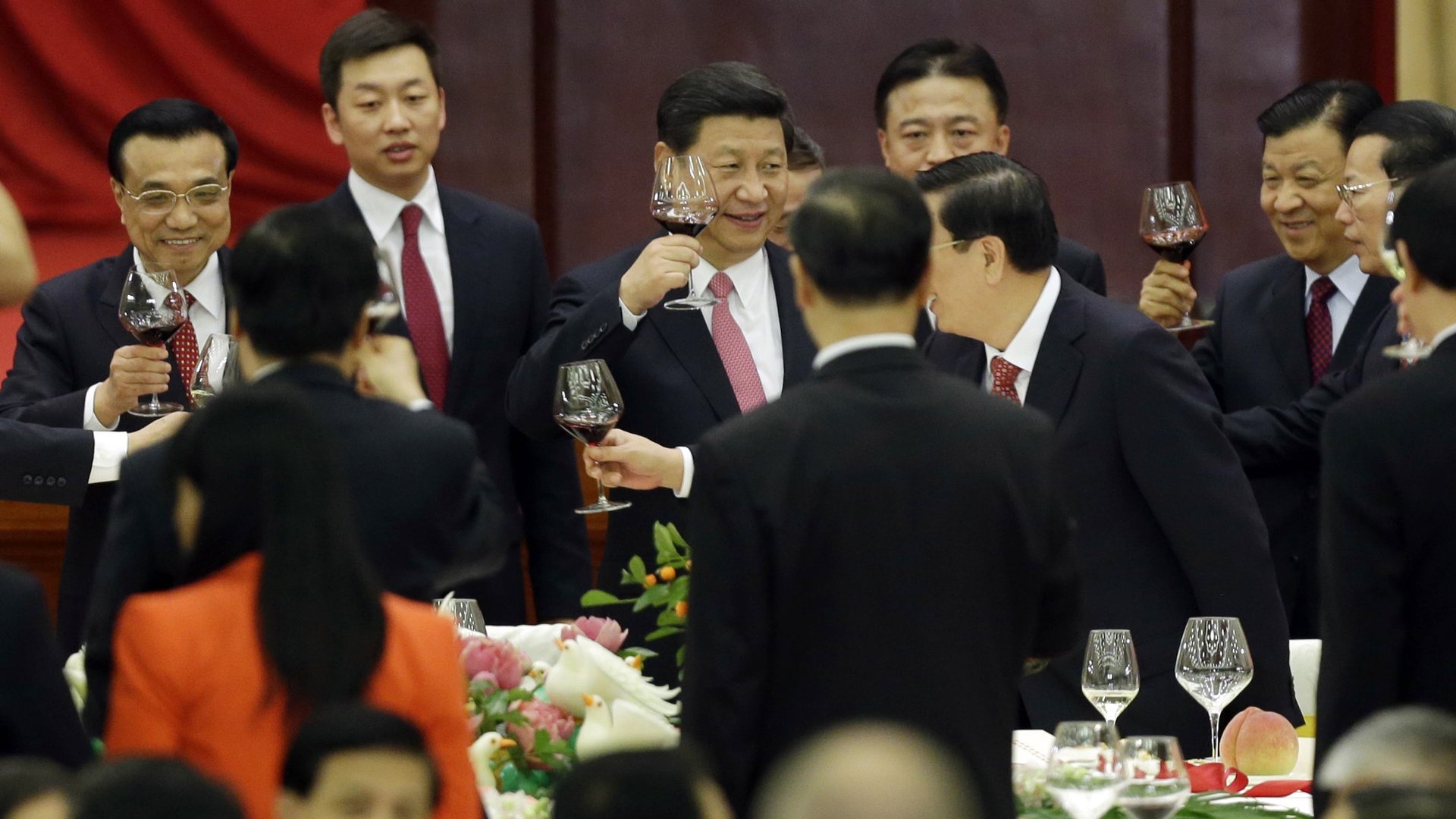The Chinese government thinks officials shouldn’t let friends drink and die
Chinese official banquet culture entails a brand of hard-drinking that makes American frat parties look like wine tastings. Refill after refill, banquet attendees urge each other to “ganbei”—”dry your glass”—as a way of building up relationships. Refusing a toast, which is usually baijiu (rice-based grain alcohol), is a big no-no. The pressure is so great that even Jon Huntsman, the Mormon former ambassador to China, supposedly imbibed while in China, relaxing his religion’s ban on liquor to ease cultural differences.


Chinese official banquet culture entails a brand of hard-drinking that makes American frat parties look like wine tastings. Refill after refill, banquet attendees urge each other to “ganbei”—”dry your glass”—as a way of building up relationships. Refusing a toast, which is usually baijiu (rice-based grain alcohol), is a big no-no. The pressure is so great that even Jon Huntsman, the Mormon former ambassador to China, supposedly imbibed while in China, relaxing his religion’s ban on liquor to ease cultural differences.
The upshot? A few officials a year die of alcohol poisoning or choking on their own vomit. But the days of boozy haze may be over, as China Real Time reports. The party just punished a high-up Heilongjiang provincial official after someone he had accompanied to a banquet died from drinking too much, according to state media.
This could be more bad news for China’s embattled liquor industry, which has seen enormous profits shrivel as a result of the government’s corruption crackdown, launched a little over a year ago. Prior to that campaign, the government spent an estimated $94.5 billion annually—thrice the national defense expenditure, according to the Global Times. But does this mark an aggressive effort to curb ganbei culture? Or is did Heilongjiang official merely get caught up in the scattershot crackdown on anything loosely associated with luxury that could embarrass Communist Party leaders?
It’s hard to tell; the official’s demotion was announced as part of a larger report on government misconduct, including the misuse of 5,900 government vehicles. And since 2009, the central government has tried to curb binge-drinking among officials, ordering government spending on entertainment cut by 10%. The seriousness of that message wasn’t enough to prevent police officials in Shenzhen from arguing that a colleague who suffocated after drinking too much had died in the line of duty. His was the fourth alcohol-related death of an official reported that year, including a provincial party secretary. Media reports of drinking-related deaths have dropped off since 2009, as the state media began calling more attention to the problem.
Perhaps the failure of past policy efforts is because the drinking ritual is so deep-seated. Many officials lament the obligation to drink but fear they can’t avoid it without risking their career advancement. Even though a few die of a single night’s excess, many more suffer long-term health effects of binge- rinking. A 2011 study of government officials’ health by a Wuhan hospital found that 34% had liver problems, while nine out of ten suffered from general poor health, reported the Global Times.